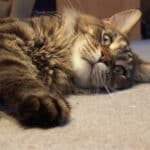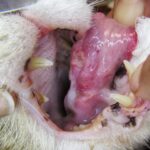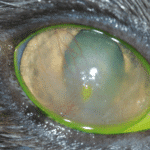
Geriatrics in the Arndt Small Animal Center: A comprehensive view
Introduction
Geriatrics is an important branch of veterinary medicine that deals with the special characteristics of older animals and their medical care . At the Arndt Small Animal Center we offer comprehensive and individually tailored geriatric care for your pets. In this article we explain how we at the Arndt Small Animal Center address the special needs of older animals and what diagnostic and therapeutic options are available to us.
Geriatrics: The Importance of Geriatric Medicine for Pets
As pets age, similar to humans, they can develop various health problems. These include, among others, chronic diseases such as cardiovascular disease, renal insufficiency, arthritis and diabetes mellitus. To maintain or improve the quality of life of older animals, appropriate geriatric care is crucial. At the Arndt Small Animal Center, we attach great importance to offering our patients individual and comprehensive geriatric care.
It's not just people who are getting older - our pets are also reaching older ages thanks to ever-improving examination and treatment methods. Our goal is to use various measures to prevent, detect and treat diseases at an early stage. In addition to the means of traditional medicine, we also use the possibilities offered by alternative medicine with great success.
Decreased activity levels with increasing age increase the tendency to become overweight (obesity), which in turn increases sluggishness. This means increased stress on the cardiovascular system and the musculoskeletal system. In addition, the tendency to metabolic diseases such as diabetes mellitus or hypothyroidism in dogs increases, the immune system becomes more susceptible to infections, the condition of the skin and coat worsens, and digestive disorders occur.
With regular preventive examinations (thorough general examination, blood test including determination of heart muscle enzymes, urinalysis, especially for the early detection of kidney diseases, x-rays or ultrasound if necessary), you enable your loved one to live as long a healthy life as possible at your side!
Diagnostics in geriatrics: Detection and monitoring of age-related diseases
It all starts with careful diagnostics in order to identify possible age-related diseases at an early stage and treat them adequately. At the Arndt Small Animal Center we use the most modern diagnostic procedures to accurately assess the health of older animals. These include, among others:
- Blood tests : to detect metabolic disorders, inflammation or organ dysfunction
- Imaging methods: X-rays, ultrasound or computer tomography for detailed representation of organs and tissues
- Neurological examinations: to assess nerve functions and possible neurological diseases
- Cardiological examinations: to assess heart function and detect heart disease
Therapeutic options in geriatrics: Individual treatment concepts for older animals
Based on comprehensive diagnostics, we at the Arndt Small Animal Center develop individual treatment concepts that are tailored to the needs of the older animal. There are various therapeutic approaches available that can be used depending on the disease and health status of the animal:
- Drug therapy: to treat pain, inflammation or metabolic disorders
- Physiotherapy and rehabilitation: to improve mobility and relieve pain from joint or muscle problems
- Nutritional advice: to optimize the feed composition
- Weight management: to reduce excess weight and prevent secondary diseases
- Behavioral counseling: to provide support with behavioral problems that are related to the aging process
- Complementary medical procedures: such as acupuncture, homeopathy or laser therapy to support conventional therapeutic approaches
Prevention in geriatrics: preventive examinations and vaccinations for older animals
In addition to the diagnosis and treatment of age-related diseases, prevention also plays an important role in the geriatric care of pets. At the Arndt Small Animal Center, we therefore offer regular preventive examinations in order to identify possible health problems at an early stage and take appropriate measures. These include, among others:
- Age-appropriate vaccinations: to prevent infectious diseases that can cause complications in older animals
- Parasite prophylaxis: to prevent parasite infestation and associated diseases
- Dental prophylaxis: to prevent tooth and gum diseases that often occur in older animals
- Advice on animal husbandry: to optimize the environment and adapt to the needs of older animals
The importance of human-animal relationships and quality of life
A central concern in geriatrics is to maintain or improve the quality of life of older animals. At the Arndt Small Animal Center we are convinced that a close human-animal relationship and individual care are essential factors for the well-being of older animals. We take the time to respond to the needs of the animal and owner and offer comprehensive advice to ensure the best possible care.
Conclusion
Geriatrics at the Arndt Small Animal Center provides holistic and individual care for older animals. Through comprehensive diagnostics, targeted therapeutic measures and preventive examinations, we can help maintain or improve the quality of life of our geriatric patients. Close cooperation with animal owners and promoting the human-animal relationship are particularly important to us. If you have any questions about geriatric care for your pet or would like to schedule an appointment, we are happy to help.






